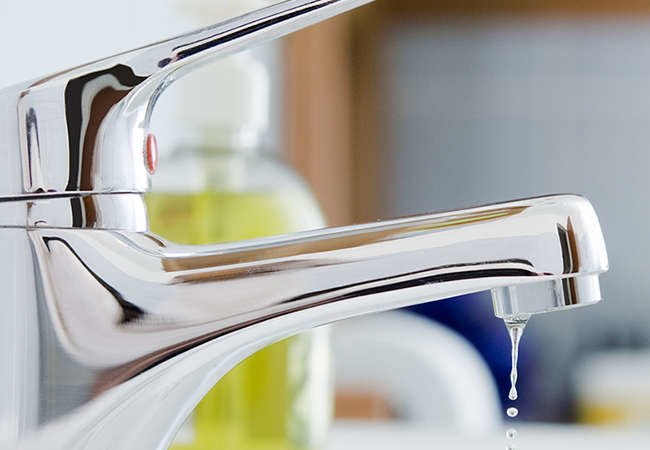

We may earn revenue from the products available on this page and participate in affiliate programs. Learn More ›
Home Advice You Can Trust
Tips, tricks & ideas for a better home and yard, delivered to your inbox daily.
Do Your Part to Save Water

YThe average family can waste 180 gallons of water per week from leaks alone—that’s as much water as you’d need to do over 300 loads of laundry. Climate change is also affecting precipitation, making drought more likely in new and already-dry areas and increased precipitation in wetter regions. (Check Drought.gov to see how your region is faring.) Fortunately, you can do your part to save water by adopting these simple habits.
Know Your Footprint
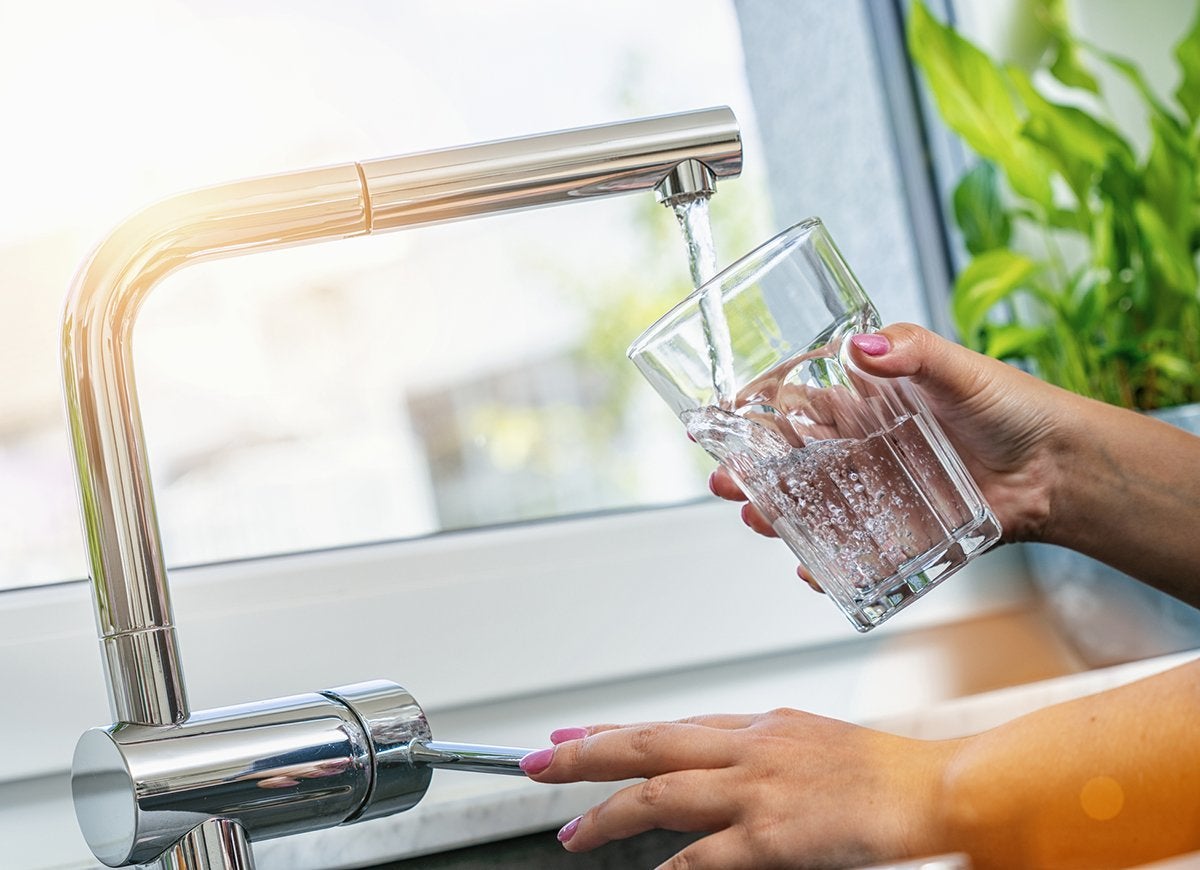
How much water do you really use? Find out by using the Water Footprint Calculator, which will help you determine your current water usage and give you tips on reducing consumption. You can also find out how much water you use by checking your water bill. The average American family uses more than 300 gallons of water a day at home.
Cooperate with Your City
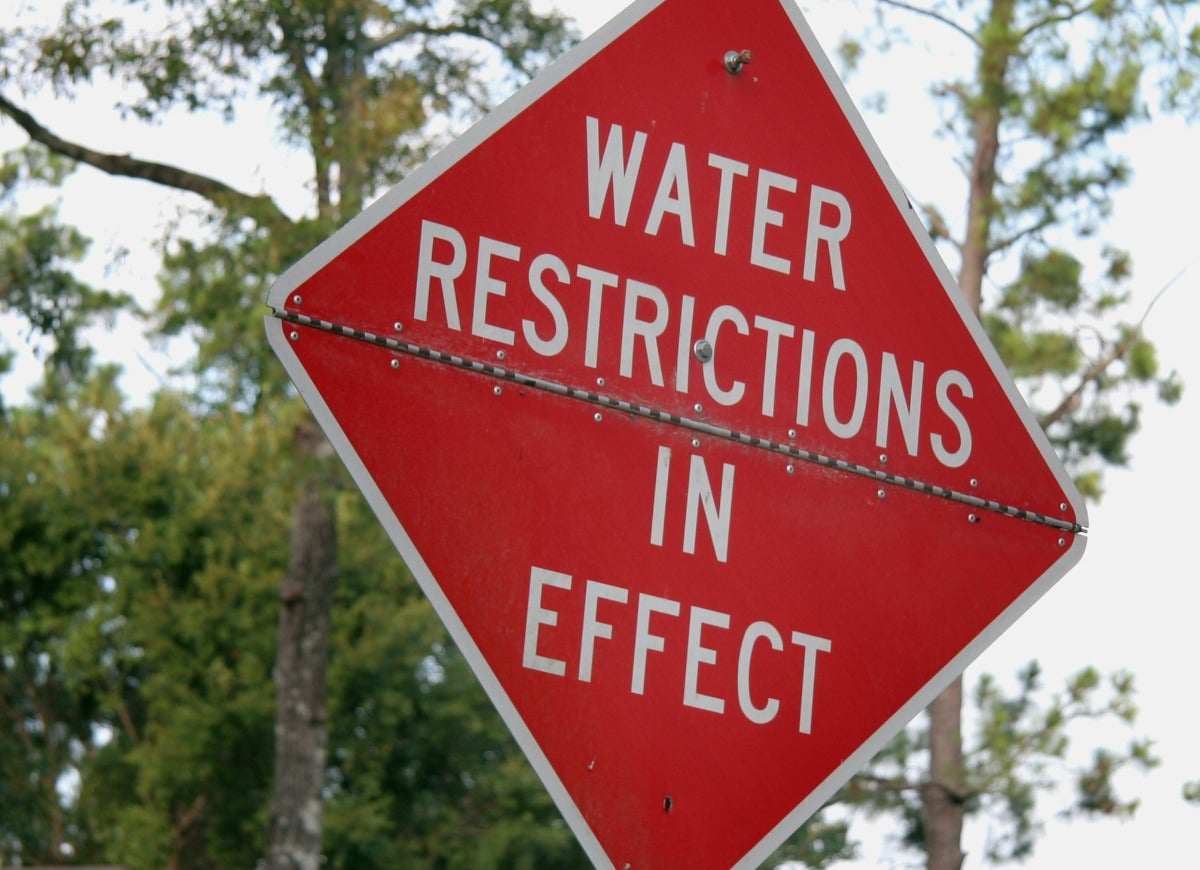
In 2022, historic drought in Western states led the U.S. Bureau of Reclamation to tell seven states to cut water use by 15 percent. Before your city or state has to resort to drastic water-saving measures like rationing, work with local laws, education, and rebate programs to do your part.
Not sure what’s available in your area? Go to the WaterSense Rebate Finder and select your state to see if your new energy-efficient washing machine or drought-tolerant tree qualifies for a rebate.
Use a Bowl to Rinse Produce

Instead of rinsing your fruits and vegetables under a stream of water from the faucet, use a popular dishwashing method of using one bowl for washing and one for rinsing. By rinsing fruits and veggies in a bowl, you save water and money, yet your produce will be clean and ready to eat or cook. Then, you can use the leftover rinsing water to water plants indoors or out.
Leak-Proof Your Home
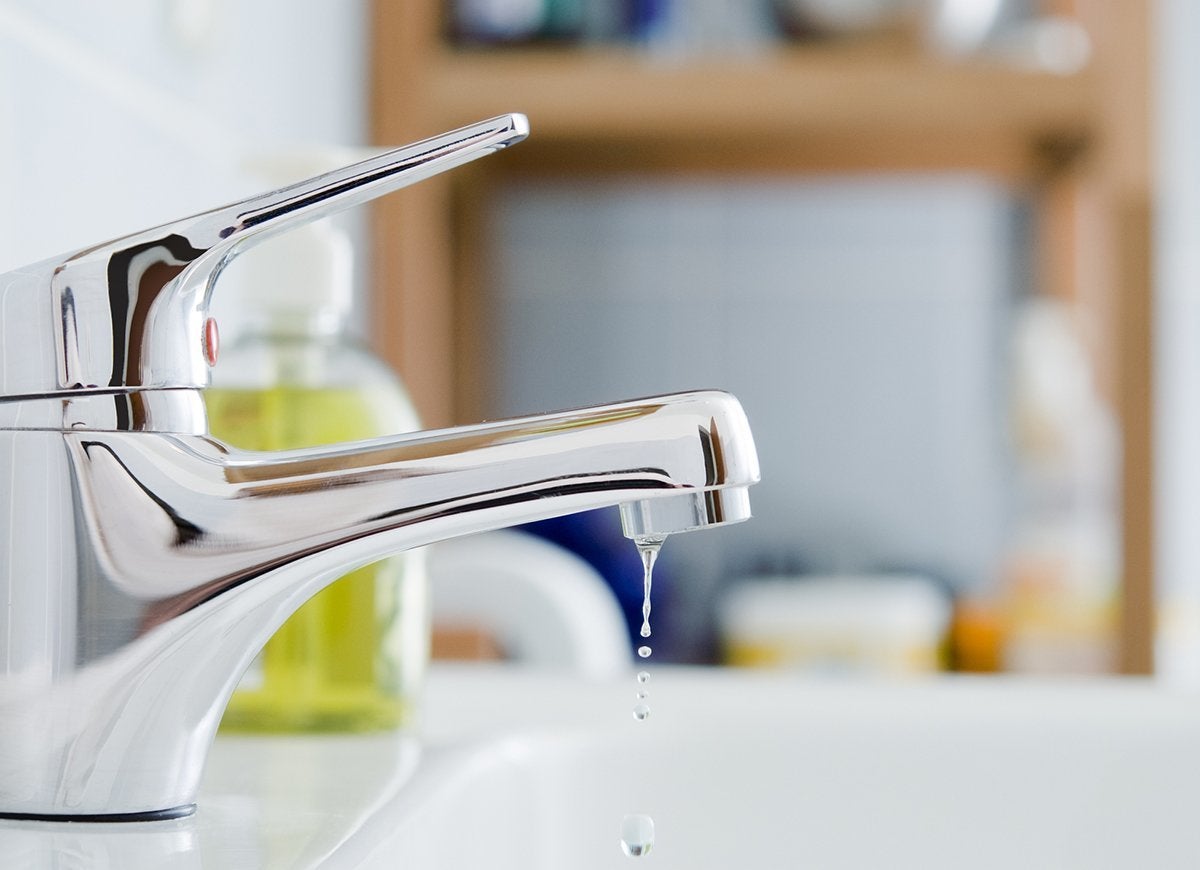
According to the Environmental Protection Agency (EPA), leaks account for 10,000 wasted gallons of water per year in the average home with leaks; up to 10 percent of homes have leaks wasting upward of 90 gallons of water a day. Leaks are commonly found in toilets, faucets, showers, and outdoor hoses. If you need help locating leaks, use this list from the EPA as a guide.
Change Your Fixtures
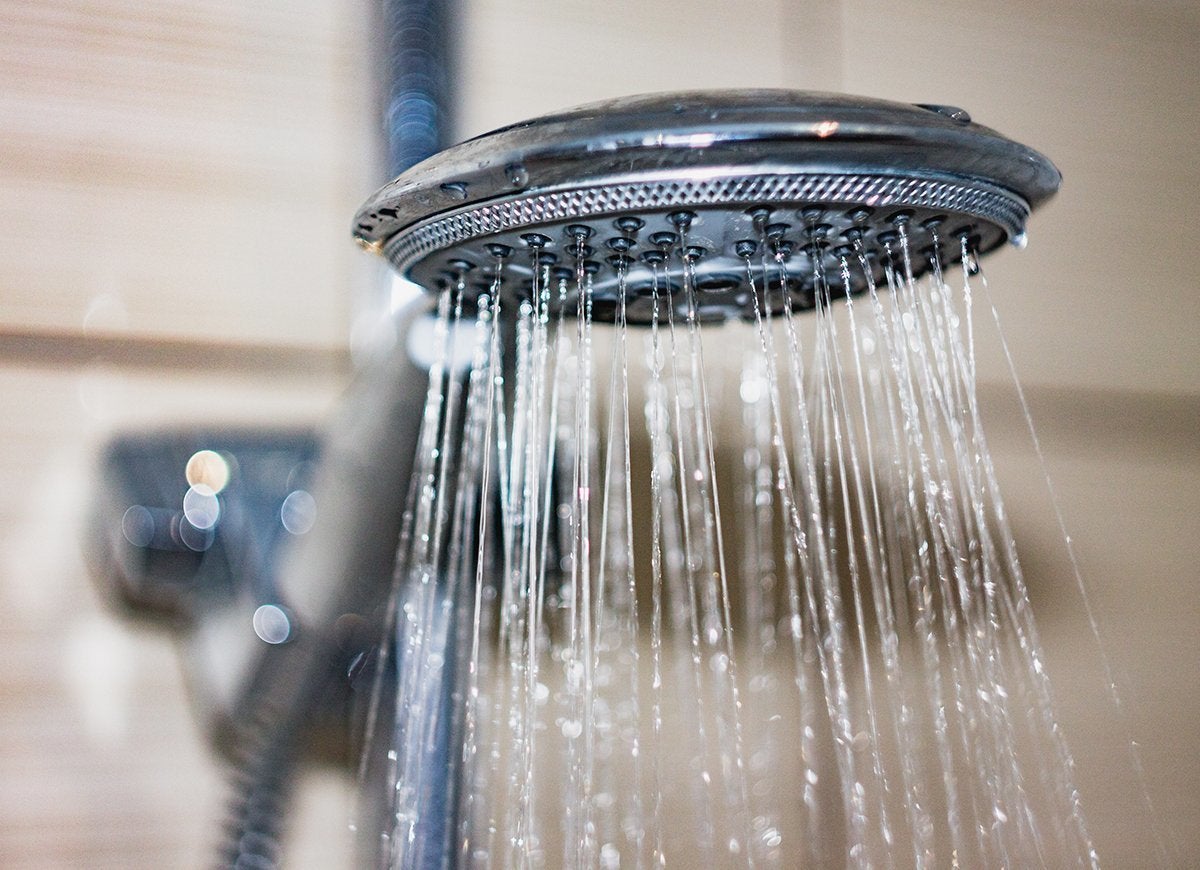
While a standard shower head uses about 5 gallons of water per minute, a low-flow head cuts that number in half. Swapping out your faucets and shower heads for WaterSense-certified fixtures is one of the easiest ways to save water. That low-flow fixture might cost more up front, but save plenty of money in water bills for years.
Collect Water
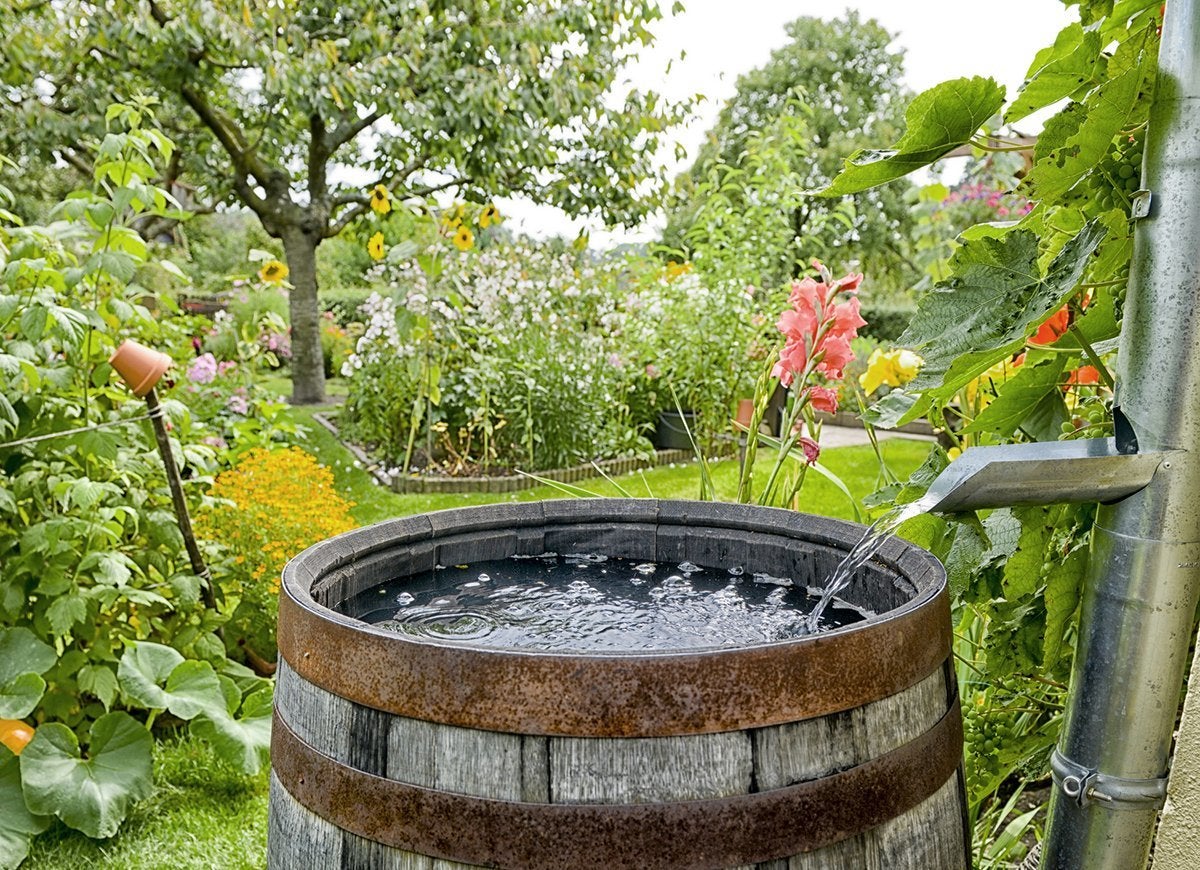
Too much good, clean water goes to waste, either down the drain or out through the downspouts. Catch it before it disappears! Place a bucket underneath your shower head or tub faucet to collect running water that’s heating up, and invest in a rain barrel to capture rainwater from your gutters. Use the saved water for plants and cleaning.
Time Yourself
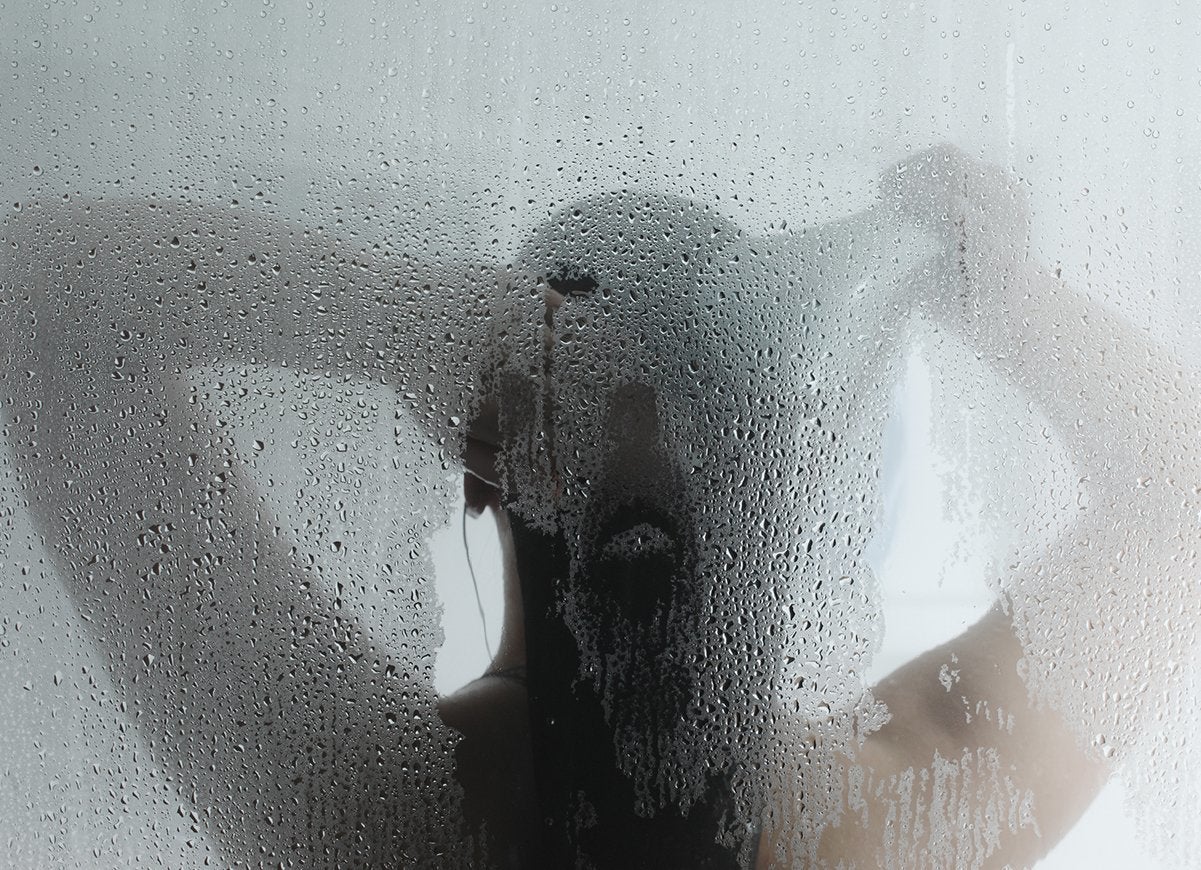
It’s easy to lose track of time in the shower (find out just how much water you’re using in the shower with this worksheet). Keep water use to a minimum by timing your showers. Ideally, your shower time should be 5 minutes or less to conserve water, but even shortening your time by a minute can help save water. You can also try doing what’s called a Navy shower, in which you turn off the shower when lathering to save water before rinsing off.
Turn Off the Tap

You’ve probably heard this one before, but it bears repeating: Always turn off the tap while you’re brushing your teeth! It’s a simple way to save hundreds of gallons each month. Likewise, minimize running water time while rinsing dishes by having them all in reach and ready to go or by turning the faucet off between rinses.
Install a Low-Flow Toilet
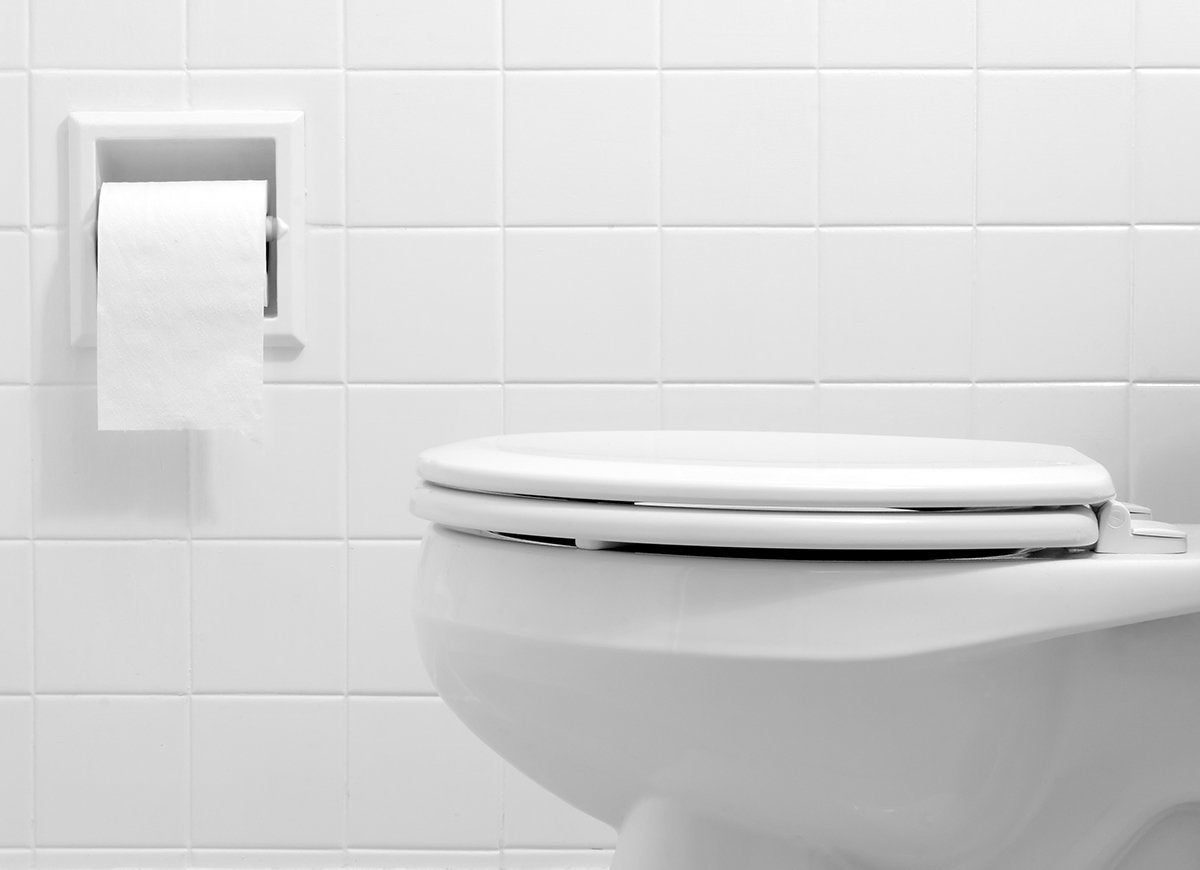
A low-flow toilet is the best option for saving water in the loo, but if you have an older model, make sure it’s working efficiently. Low-flow toilets use 1.6 gallons to flush, where older toilets use 3.5 gallons. The Natural Resources Defense Council (NRDC) recommends checking for leaks by putting a few drops of food coloring into the tank. If the color shows up in the bowl, your toilet needs a tune-up.
Plug the Sink
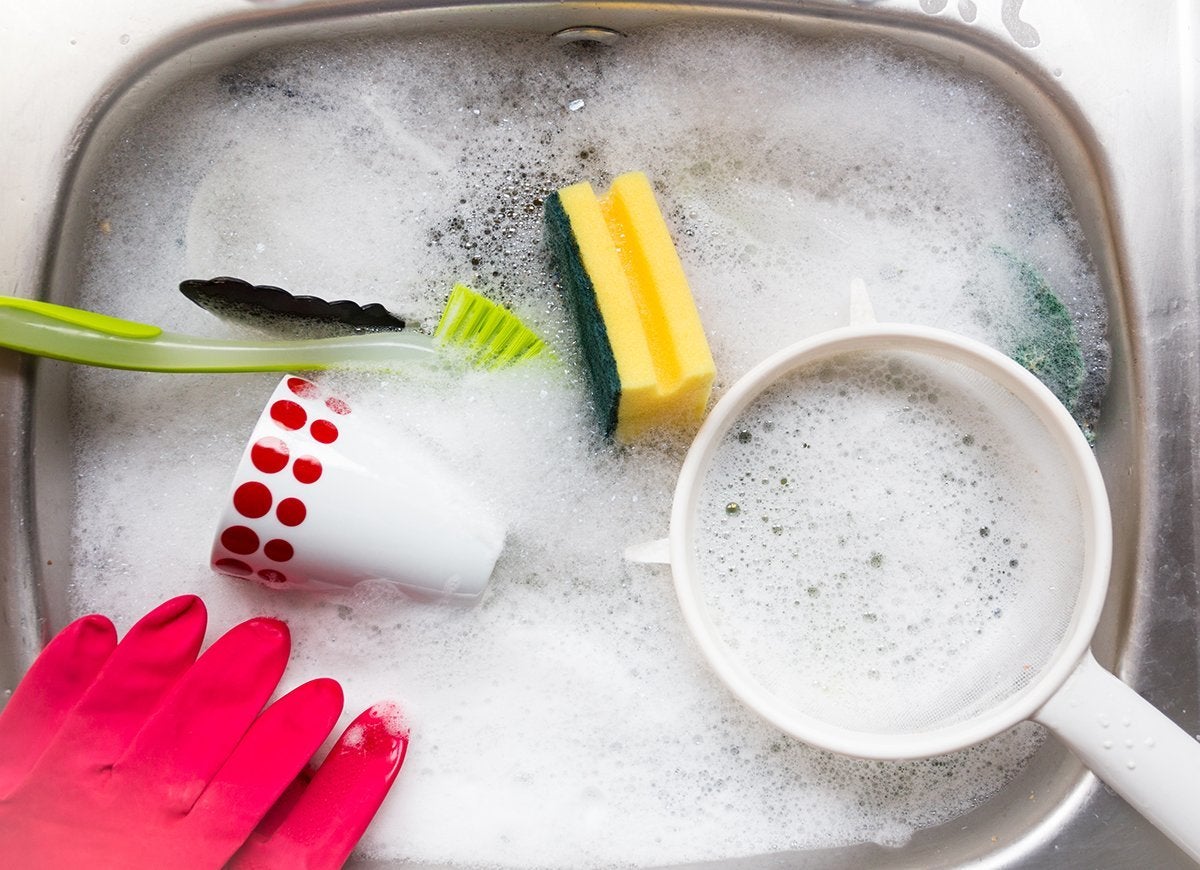
Running the tap while washing dishes wastes up to 27 gallons a load, according to the NRDC. Plug the sink while scrubbing up after dinner, and if you capture the gray water, use it for cleaning, watering plants, or flushing your toilet—just pour it down the bowl.
Run Full Loads Only
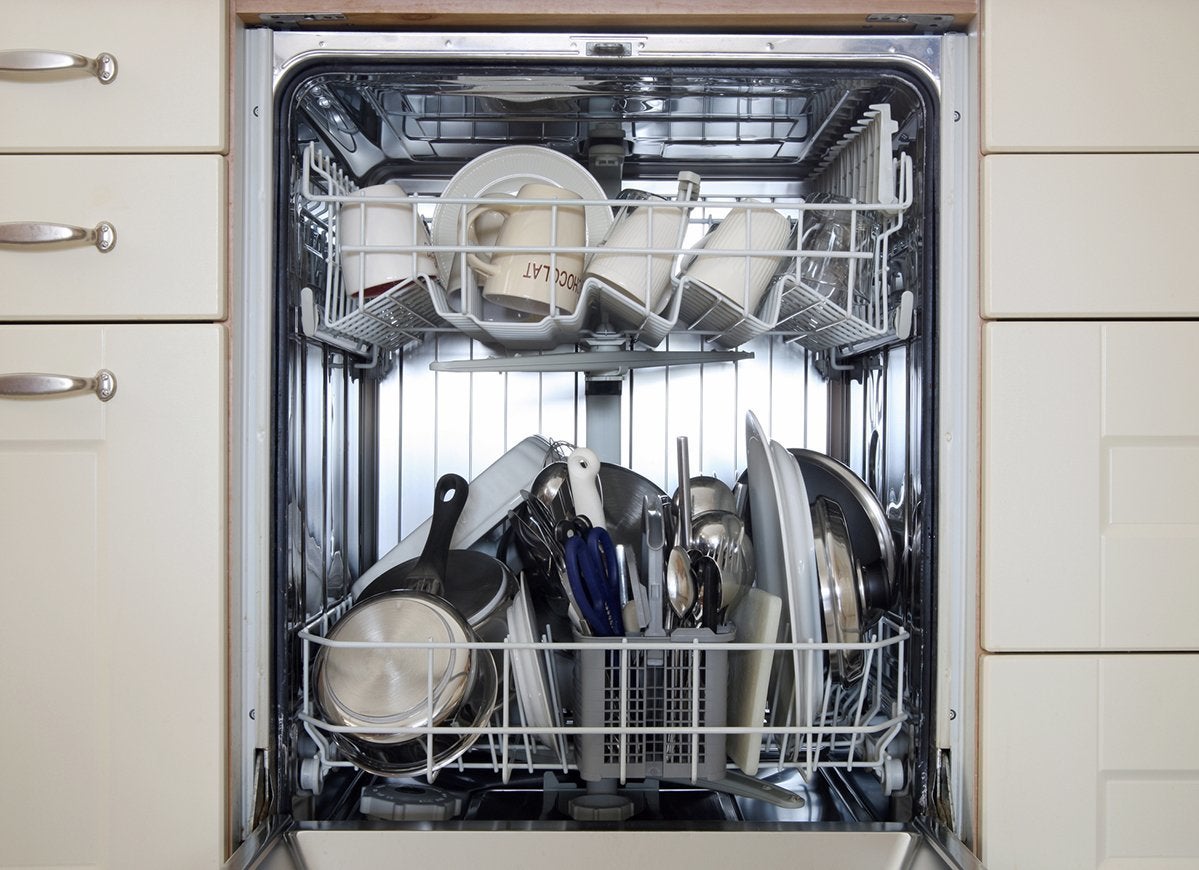
When using your dishwasher or washing machine, make sure it’s completely full before you press start. And don’t bother rinsing the dishes—just scrape them and load them in. It might seem counterintuitive, but most modern dishwasher detergents are designed to adhere to food particles to do their job.
Choose Cold Settings
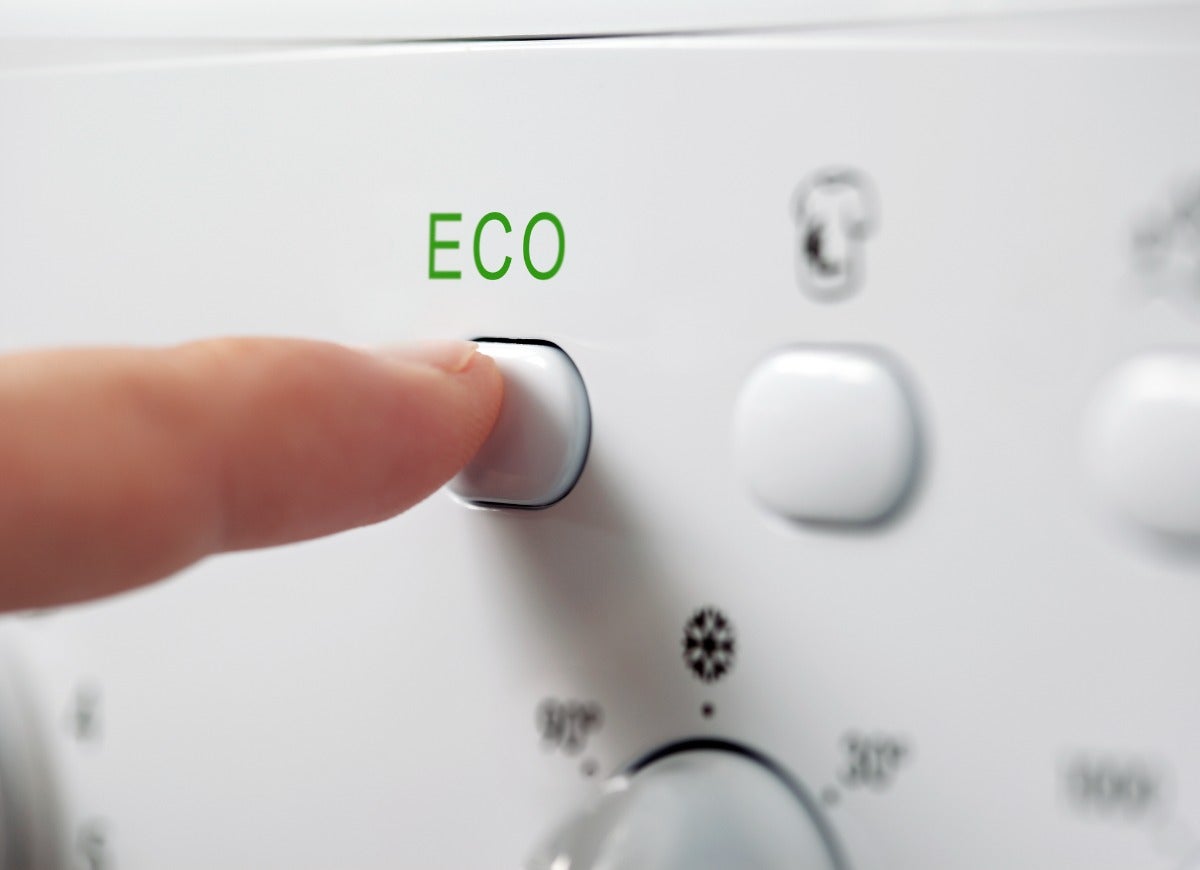
Washing laundry in cold water is usually best because it preserves the quality of your fabric. What’s more, when washing in cold water, you can launder a variety of clothing types together, which cuts down on the number of loads you run. Cold-water washing will save you both water and energy—and given that heating water accounts for roughly 20 percent of home energy use, that’s no small potatoes.
Buy Energy-Efficient Appliances
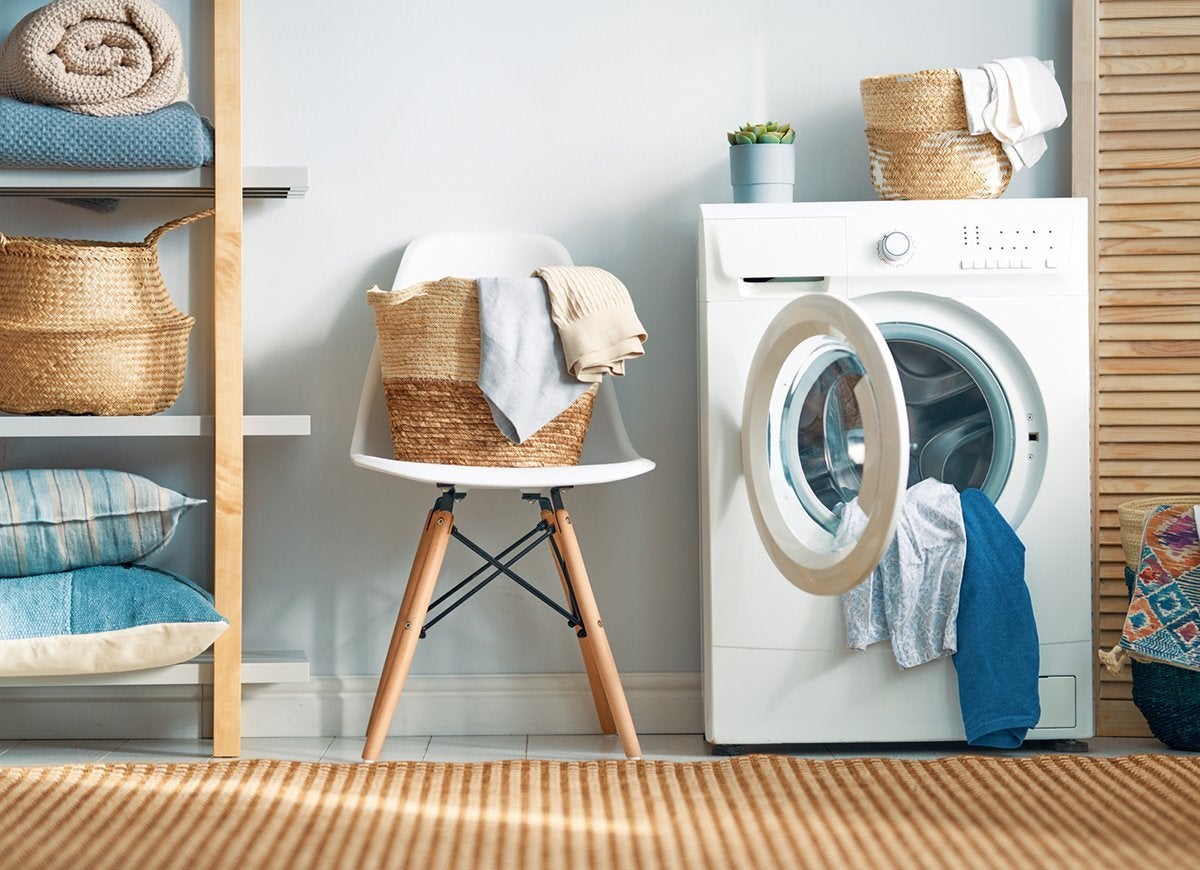
The initial outlay can cost more for energy efficiency than for basic appliances, but over the long run it pays to buy energy-efficient models. Case in point: Energy Star-certified washing machines use about 40 percent less water than standard models. In some cases, buying more efficient appliances can qualify you for a tax break too.
Water by Hand
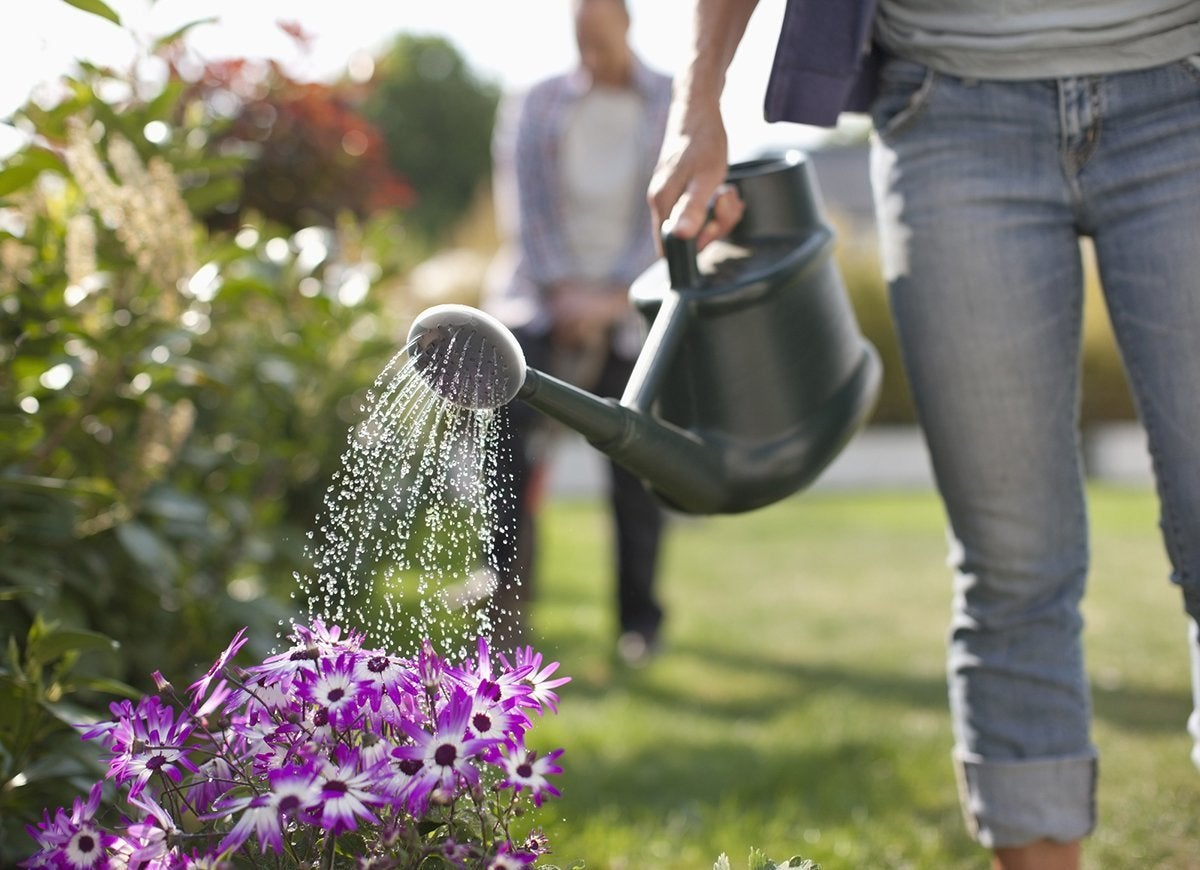
Use your reserved shower water (see above) to water your garden by hand. Using a watering can will help you monitor moisture levels more precisely, avoiding water waste. If you must rely on an automatic sprinkler system, be sure to have it serviced regularly.
Eat and Drink Consciously

Changing your diet affects more than just your waistline. Eating less red meat, more organic produce, less coffee, fewer processed foods, and fewer nuts reduces our reliance on water-intensive crops and livestock.
Cut Back on Energy Use
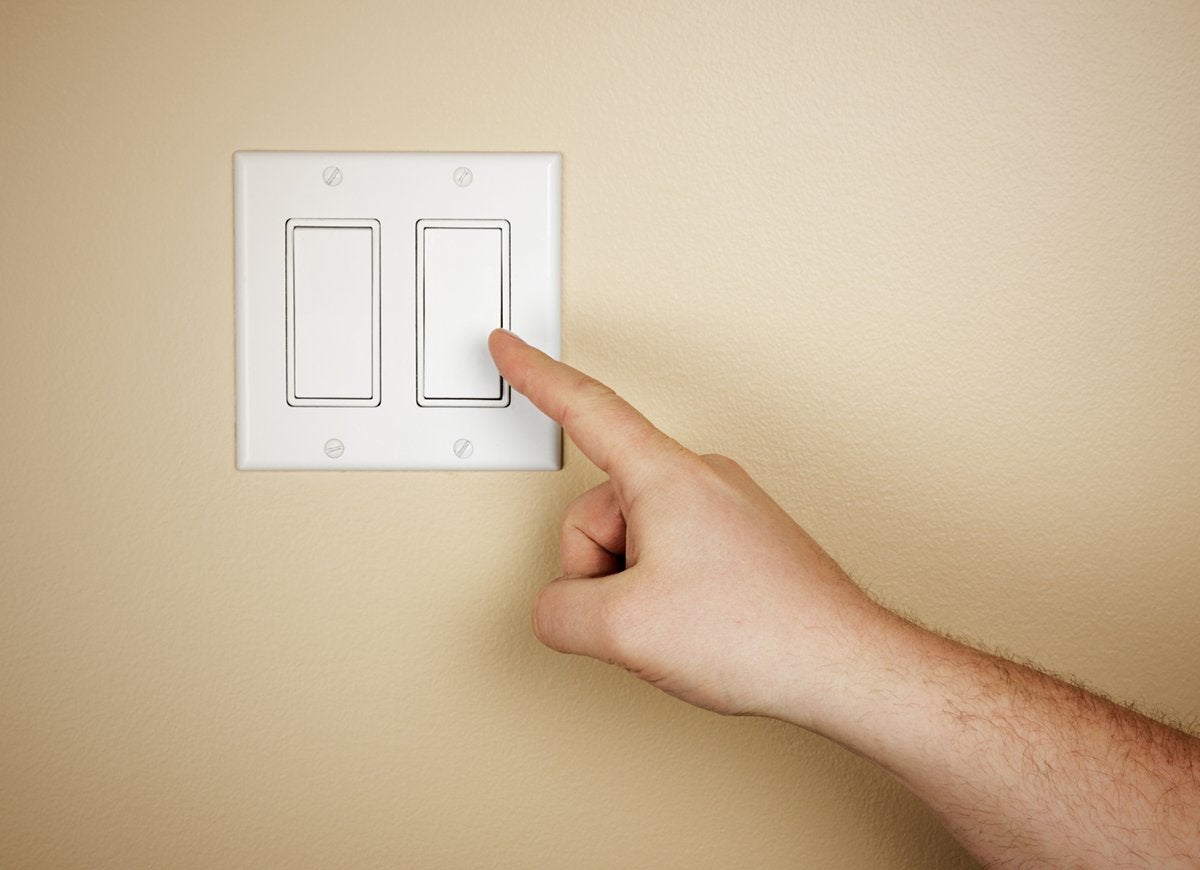
Almost 90 percent of electricity in the United States is generated by thermoelectric power plants, which heat water into steam that turns turbines and generates power. Water is also essential in producing and refining fossil fuels. In other words, when you cut down on your electric and fossil fuel usage, you also save water.
Shop Smarter

Most consumer goods, from food and fashion to electronics, require water as part of their production and distribution. Remember what you learned in school: reduce, reuse, recycle and decrease your water footprint.
Buy WaterSense Appliances
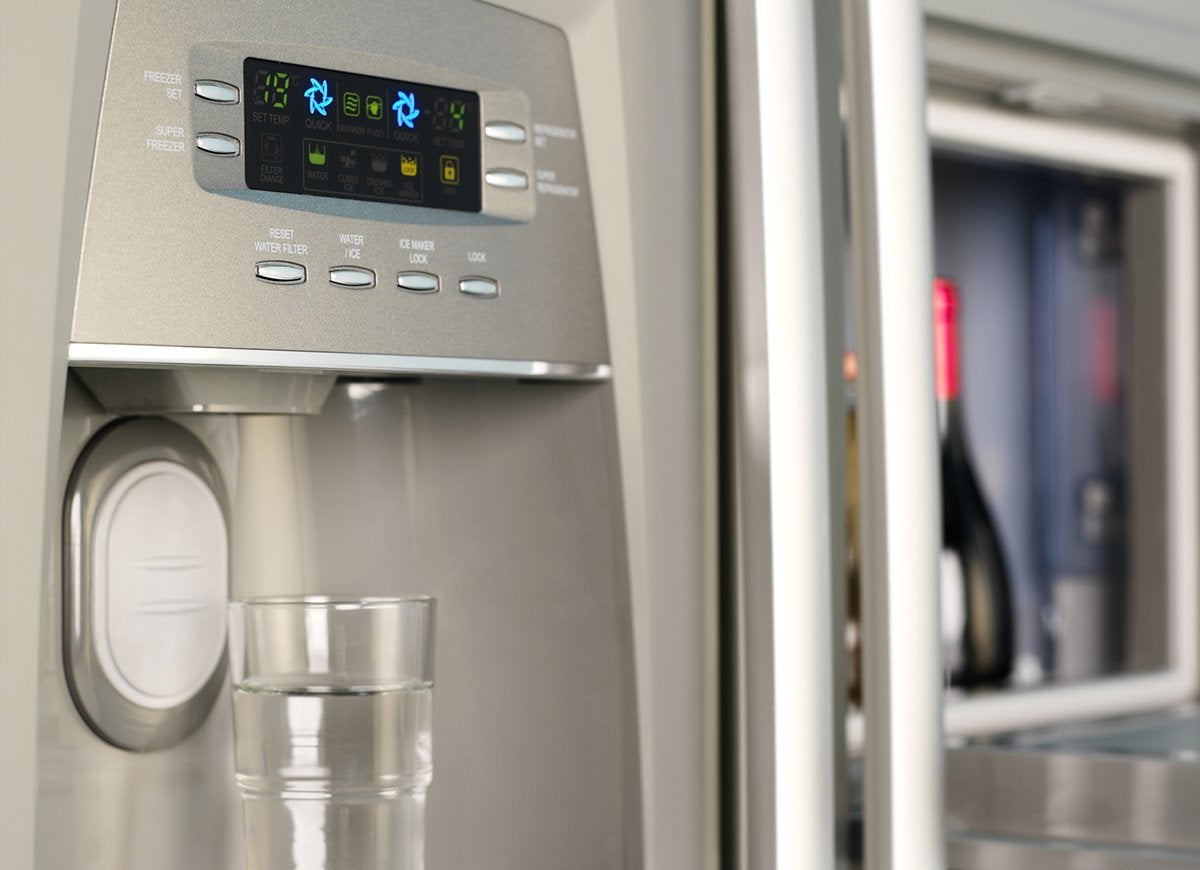
Confused about which appliances and fixtures are the most water efficient? Just look for the EPA’s WaterSense label, which indicates that these appliances (and some outdoor irrigation tools) have met independent, well-researched standards for water savings, quality, and performance.
Make It a Game

Have your family take this EPA-designed quiz for kids, then challenge them to find everyday ways to save water. Turn it into a game, and encourage everyone in the family to find fun and creative solutions. Review your water bill as a family, choose a usage target—and reward yourselves for hitting it.
Focus on Fashion

This headline said it all: “It takes 2,700 liters of water to make ONE T-shirt—as much as you’d drink in 3 years.” Think before you buy, and don’t fall for fast fashion and seasonal buying sprees. The industry is ramping up its water awareness, and you can too with small steps, such as choosing organic cotton over conventional cotton for that T-shirt.
Go Stainless
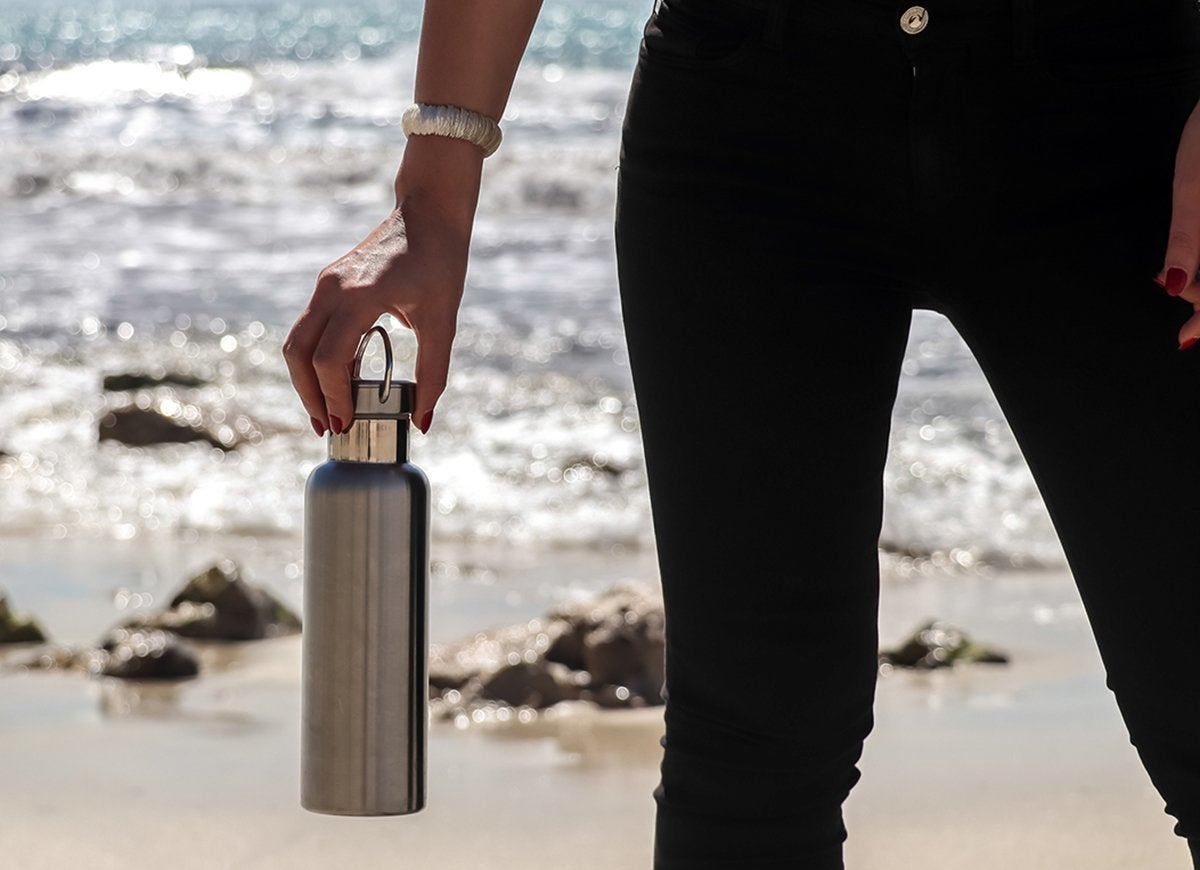
Save water and cut down on the number of germy, polluting plastic water bottles littering the streets and clogging up recycling facilities. Instead, buy a sleek, refillable stainless steel bottle, and keep it with you at all times.
Cover the Pool
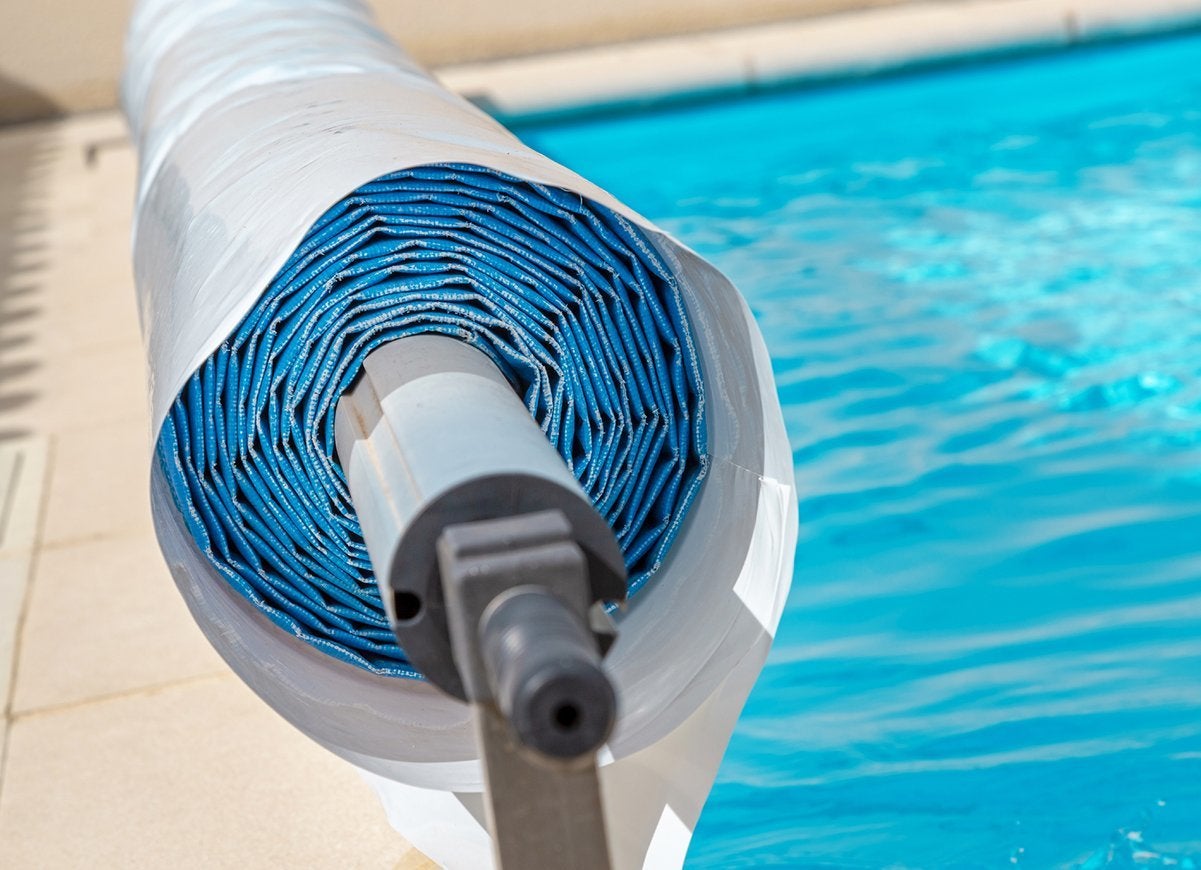
For those of us who are lucky enough to be pool owners: Did you know that an average-size pool loses more than 20,000 gallons of water each year to evaporation? Cover your pool in all types of weather, or invest in an automatic pool cover system.
Cut Back on Garbage Disposal Use
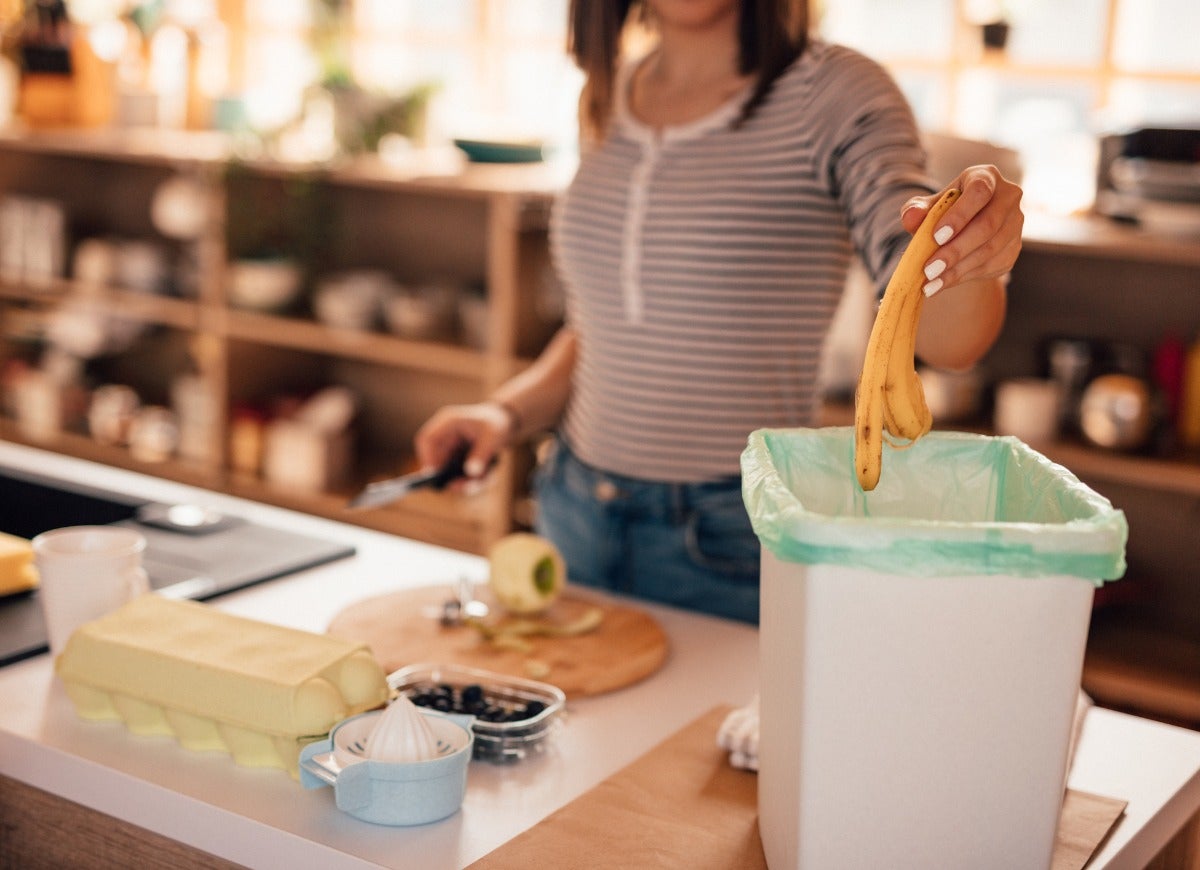
You can save water and energy by reducing your use of the garbage disposal, which requires running water to grind and flush out food, and instead compost your food scraps. Composting also gives you nutritious matter you can use for everything from outdoor gardening to creating a compost tea for your indoor and outdoor plants.
Keep Water in the Fridge
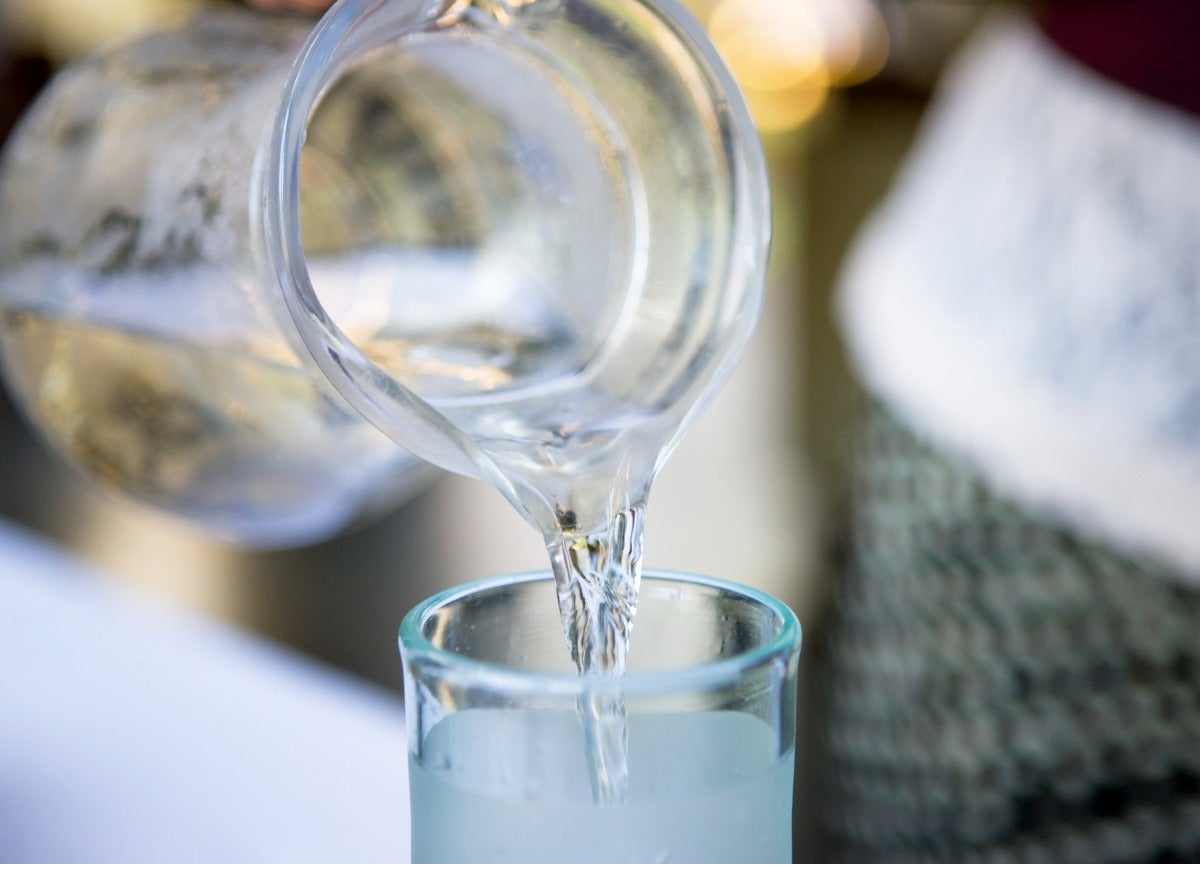
Instead of grabbing a glass and waiting for the tap water to run cold out of the faucet next time you’re thirsty, imagine a cold pitcher of water already waiting for you in the fridge. Keeping your drinking water in the fridge ensures the water is already cold and you don’t need to waste tap water waiting for it to reach the perfect temperature.
Use Fewer Dishes
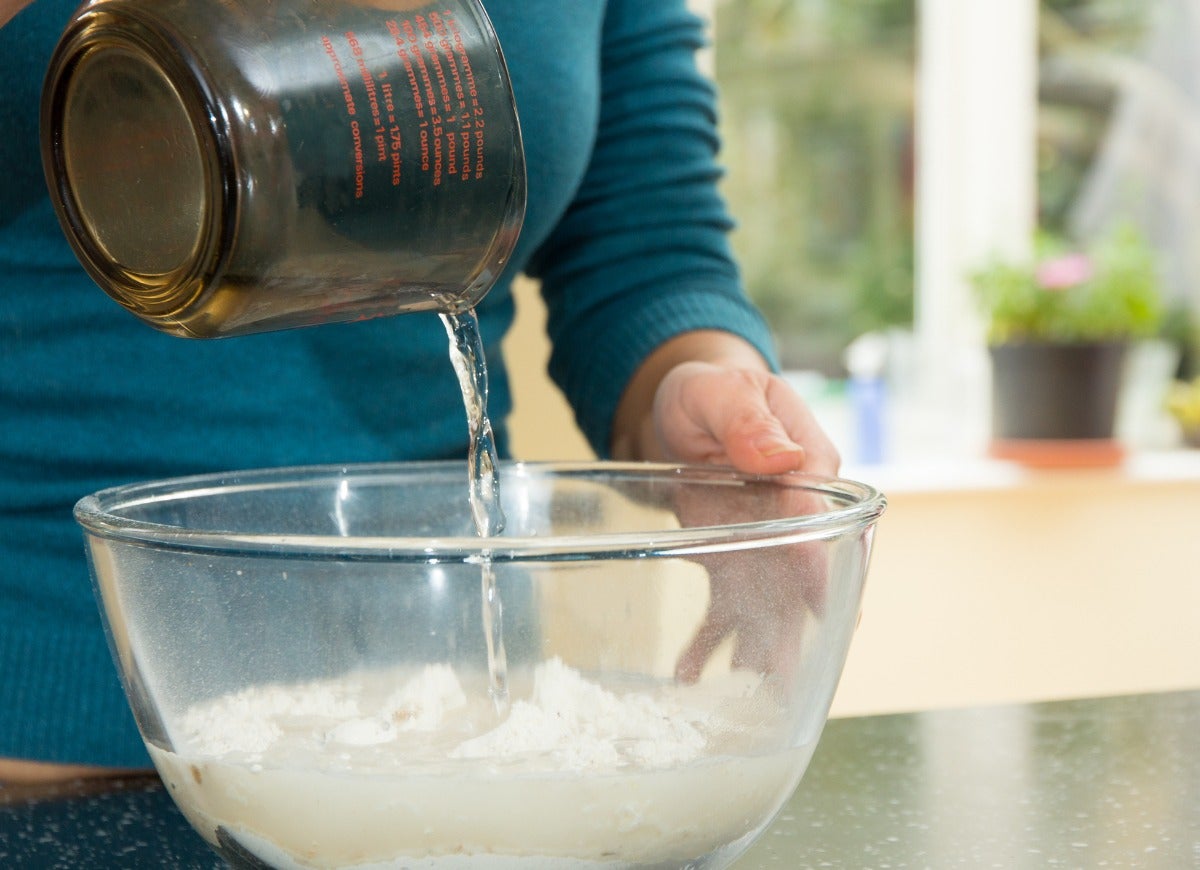
Using fewer dishes means facing fewer dishes to wash at the end of the day. For example, have one water glass or reusable bottle for drinking per day, or consolidate measuring cups and bowls when baking or cooking by investing in one large bowl or a multi-cup measuring cup. You’ll save water when it comes time to clean up all those dishes.
Test Your Soil
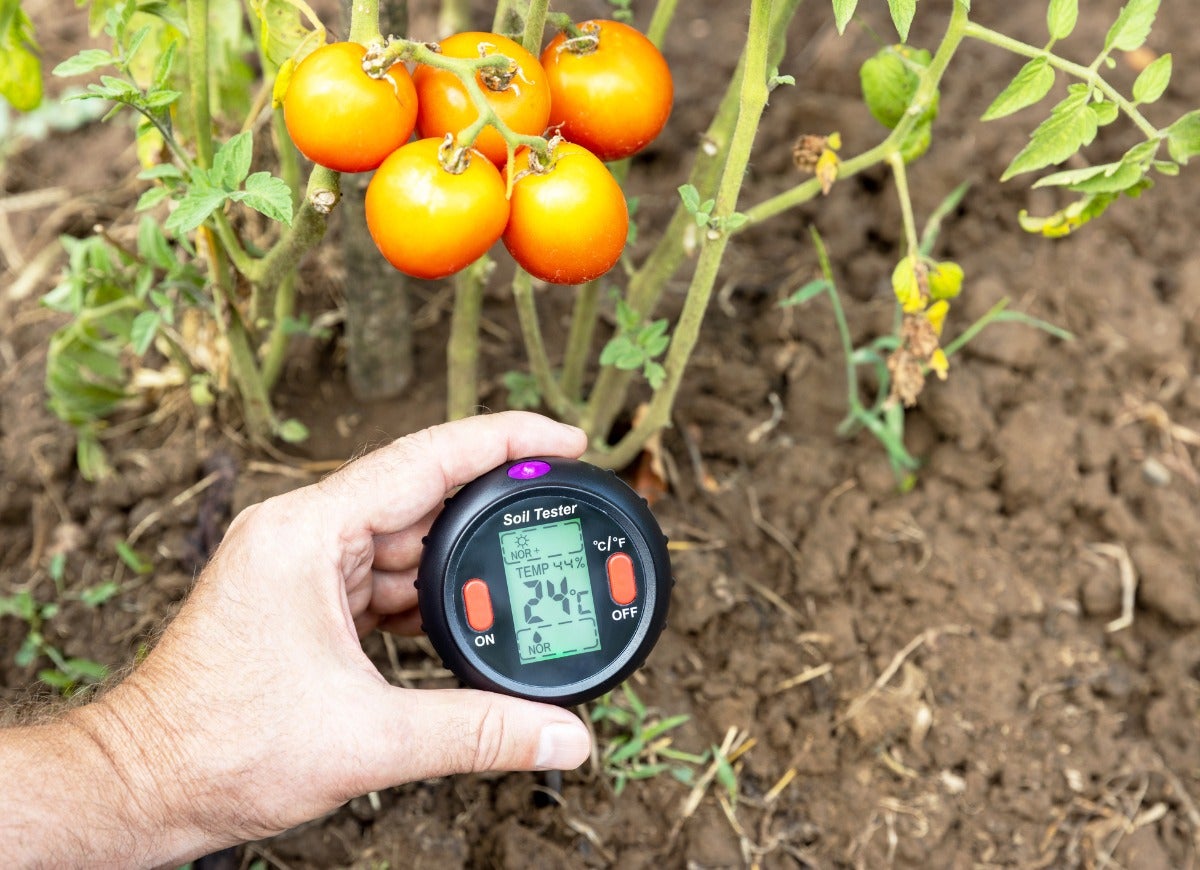
Healthy soil will naturally absorb and retain water better, meaning you won’t need to water it as much. Have your soil tested about every 3 years to check its nutrient content, especially if you’re trying to grow fruits, vegetables, or even just healthy-looking grass. You can also consider adding a layer of mulch on flower beds, which will help retain moisture better as well by slowing evaporation.
Choose Short Wash Cycles
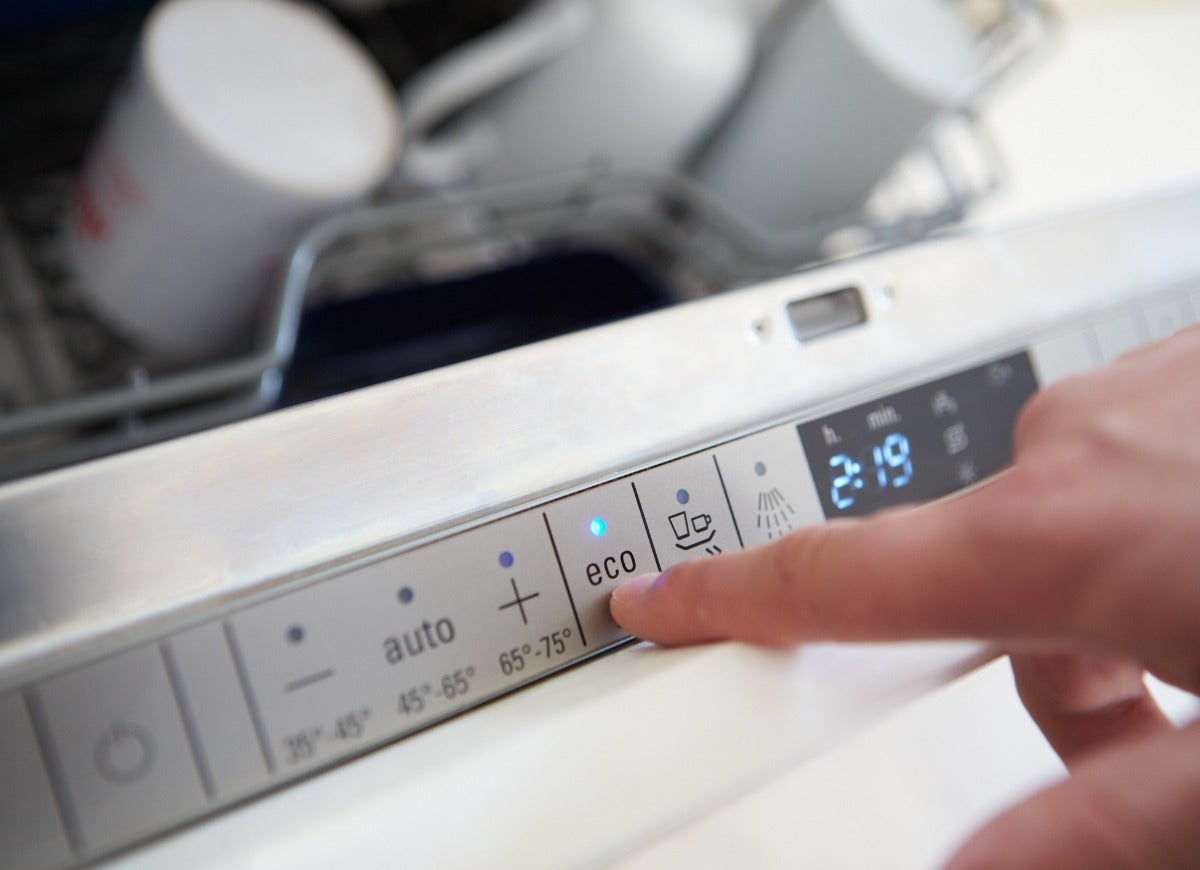
On appliances such as dishwashers and washing machines, choose the shortest cycle possible to reduce the amount of water and energy used. Washing machines might have “speed wash” cycles and dishwashers typically include “light wash” or “quick wash” settings. This may not be an option if you’re washing a particularly soiled load, but for all other loads, it’s a great way to save water.
Aerate Your Lawn
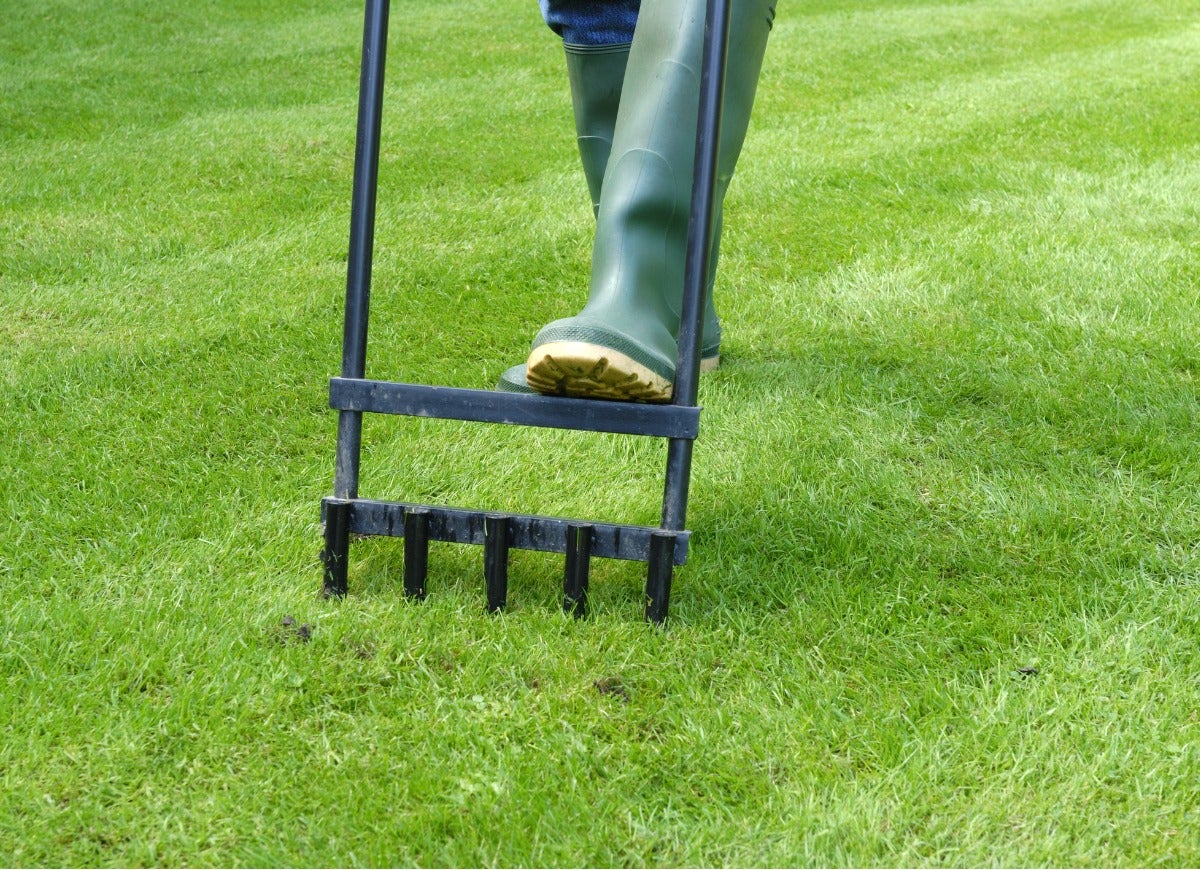
Aerating your lawn every 2 to 4 years can help water better penetrate the soil so you won’t need to irrigate it as much. You can also heighten your lawnmower blades so they don’t cut grass as short. Taller grass retains moisture better and might even help prevent weeds and disease from affecting your grass.
Use Leftover Water
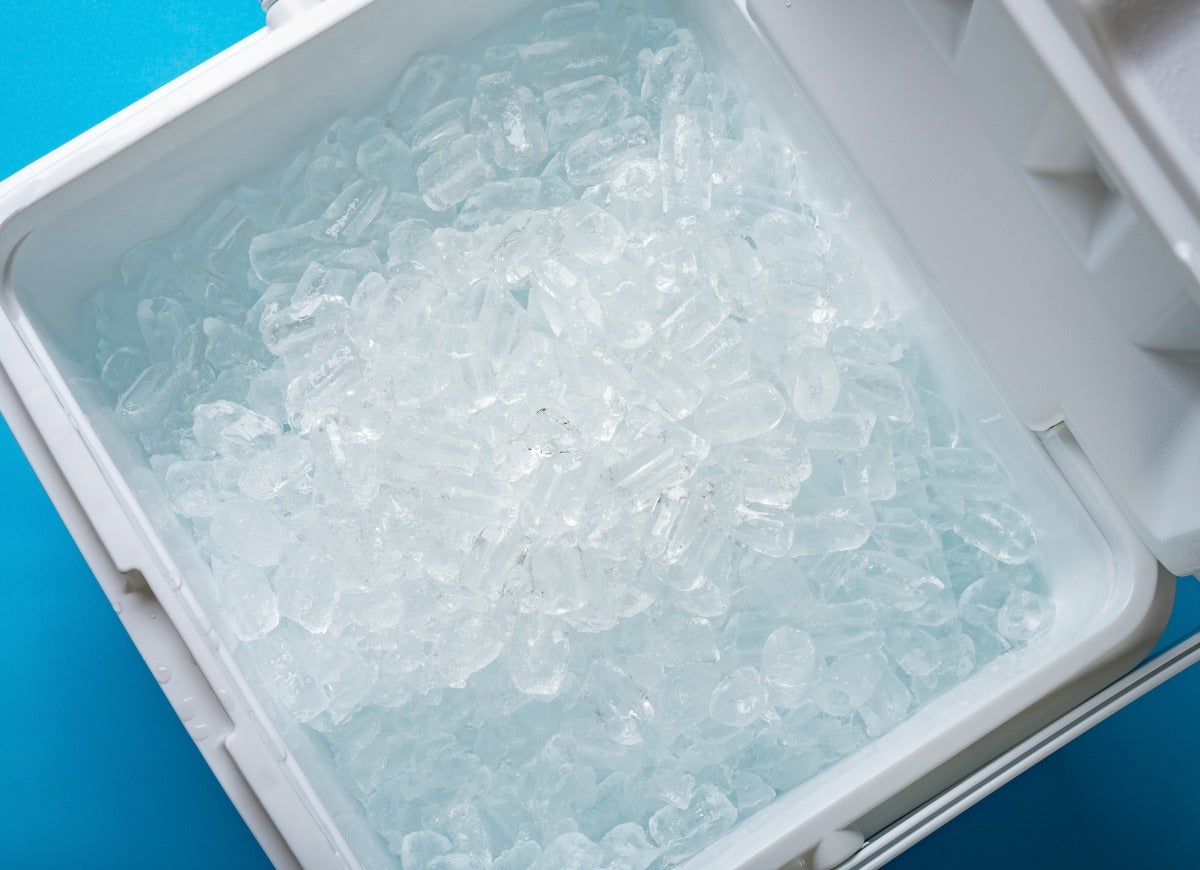
In addition to catching shower water in a bucket while it heats up, you can capture otherwise wasted water from old plastic bottles rolling around on the car floor or from the batch of cooked pasta. Use the leftover water later to water plants, mop floors, wash the car, or anything else you like. Likewise, empty the extra ice from the camping trip or weekend get-together to water the lawn instead of draining the cooler in the sink or tub.
Conduct a Water Audit
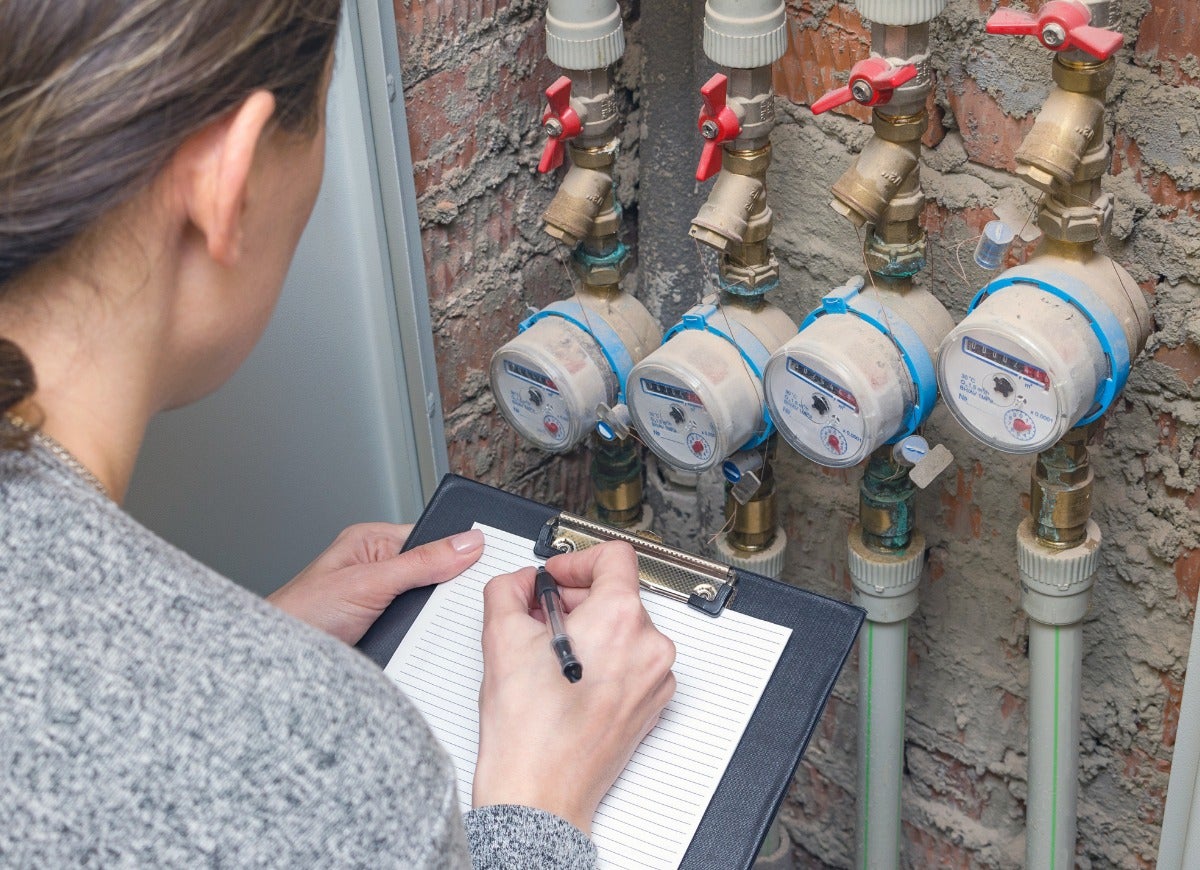
Conducting a water audit is a simple way to calculate how much water you use at your home. By keeping an eye on your water bill and your water usage, you will know when you need to check for any leaking or faulty appliances that are unknowingly wasting water. You can also see just how much implementing these tips will save you.

I Made This One Smart Investment to Ensure My Plumbing and Appliances Last Longer
When I replaced my 15-year-old water softener, I did not anticipate exactly how much more efficient and intuitive this new model from Culligan would be.